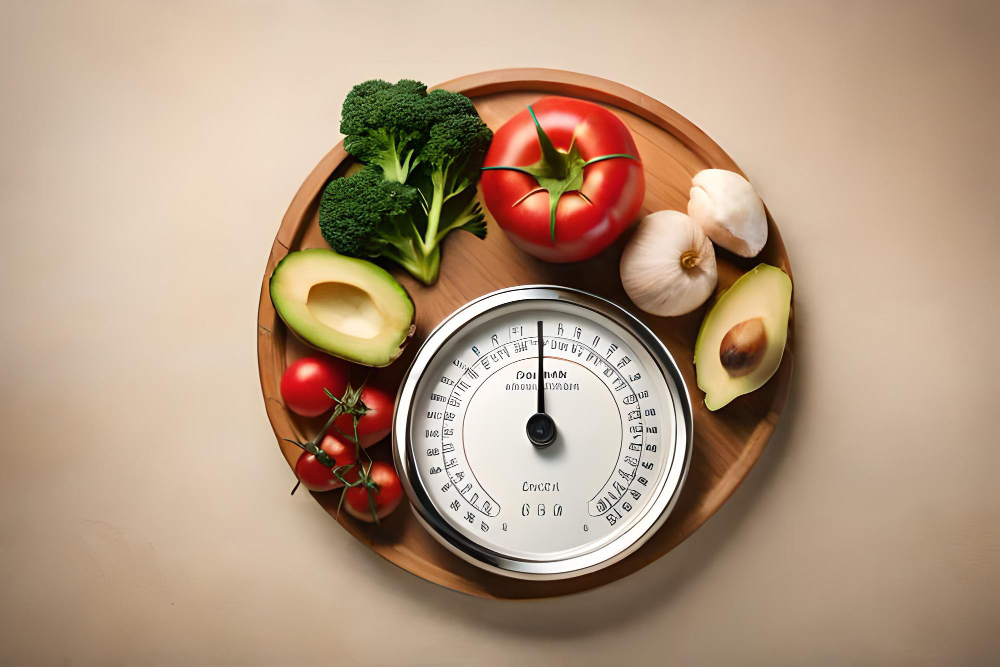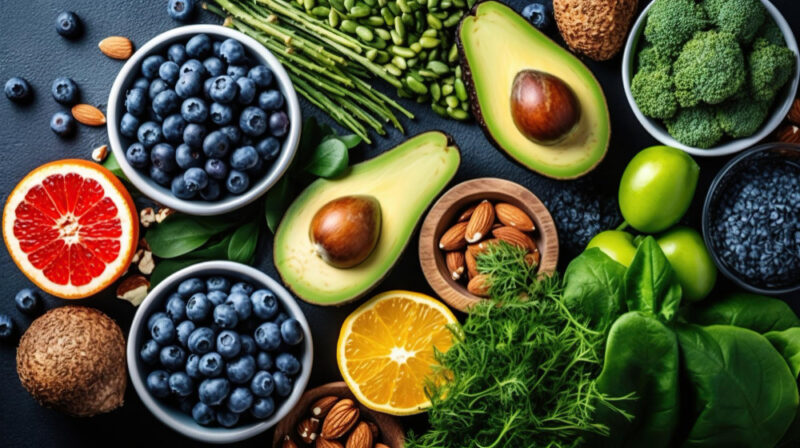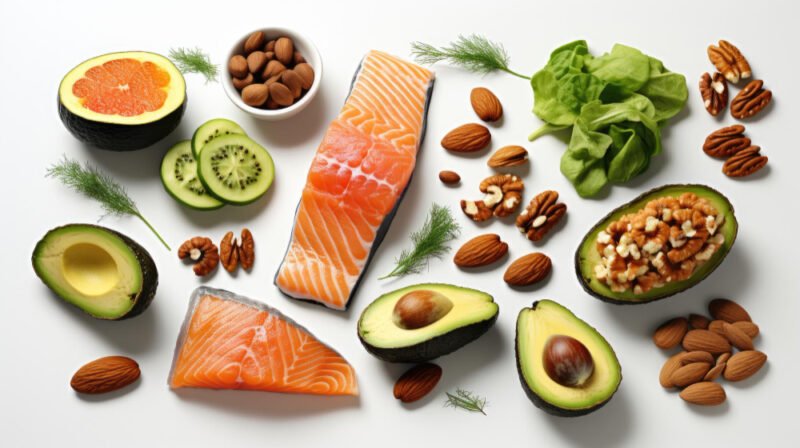Different omega levels can help increase your health as well as the suppleness of your skin.
In the realm of nutrition, fats often get a bad rap. Nevertheless, not all fats are created equal.
Among the diverse family of fatty acids, omega-9s stand out, yet they seem to need to get the same attention as their cousins, omega-3 and omega-6. Let us dive into omega-9 fatty acids, explore their benefits, and see how they compare to other fats in our diet.
The Omega Family: A Brief Overview
Fatty acids are crucial for our health, serving as energy sources and building blocks for cell membranes.
Based on their chemical structure, they are classified into saturated, monounsaturated, and polyunsaturated fats.
Omega-3 and omega-6 fatty acids are polyunsaturated fats, essential for our body’s functions, but cannot be synthesized by the body. Omega-3s, found in fish, flaxseeds, and walnuts, are celebrated for their anti-inflammatory properties and heart health benefits. Omega-6s, abundant in vegetable oils and processed foods, are essential in moderation but can promote inflammation when consumed in excess.
Enter Omega-9: The Monounsaturated Marvel
Omega-9 fatty acids, primarily monounsaturated fats, are a different story. Our bodies can produce omega-9s, so they are not considered essential. The most common omega-9 fatty acid is oleic acid, the star component of olive oil, avocados, and almonds.
Despite being non-essential, omega-9s play a vital role in our health. They are known for their heart-healthy benefits, similar to omega-3s.
Research shows that omega-9s can help reduce bad cholesterol (LDL) levels and increase good cholesterol (HDL) levels, promoting a healthy cardiovascular system.
A study published in the “Journal of the American College of Nutrition” found that a diet high in monounsaturated fats, like omega-9s, can significantly reduce the risk of heart disease.
The Understated Importance of Omega-9s
So why don’t omega-9s get as much attention as omega-3s and omega-6s? Since our bodies can produce them, they are often overlooked in discussions about essential fatty acids.
However, their importance in a balanced diet is still maintained. Incorporating foods rich in omega-9s can enhance the overall quality of our dietary fat intake, contributing to better health outcomes.
Sources and Suitability for Different Diets
Omega-9 fatty acids are abundant in plant-based oils like olive, avocado, and almond oils. They are also found in nuts and seeds. This makes them suitable for a wide range of vegetarian, vegan, and Mediterranean diets, known for their heart-healthy benefits.
For those following a low-fat diet, it is essential to remember that not all fats are detrimental. Replacing saturated fats with monounsaturated fats like omega-9s can improve heart health without increasing total fat intake.
Unveiling the Power of Omega-9: A Multifaceted Ally for Your Well-being
Omega-9 fatty acids, though often overshadowed by their omega-3 and omega-6 counterparts, hold a treasure trove of benefits that can enhance various aspects of our health and performance. Let us explore the top six ways omega-9 can be your ally in achieving optimal well-being.

One: Give your heart a helping hand
Omega-9 fatty acids, particularly oleic acid, are highly beneficial for heart health because they positively influence cholesterol levels.
Unlike omega-3 fatty acids, which are polyunsaturated fats known for reducing inflammation and lowering triglycerides, omega-9s are monounsaturated fats that primarily work by improving the lipid profile.
They help reduce the levels of low-density lipoprotein (LDL) cholesterol, often referred to as “bad” cholesterol, while increasing high-density lipoprotein (HDL) cholesterol, known as “good” cholesterol. This balance is crucial for maintaining healthy blood vessels and reducing the risk of atherosclerosis, a condition characterized by the buildup of plaque in the arteries, which can lead to heart attacks and strokes.
A study published in the “Journal of the American College of Nutrition” highlighted that diets high in monounsaturated fats, such as omega-9s, are associated with a lower risk of cardiovascular disease.
Another study in the “American Journal of Clinical Nutrition” found that replacing saturated fats with monounsaturated fats like omega-9 can significantly reduce total cholesterol and LDL cholesterol levels.
The best food source for obtaining heart-healthy omega-9 fatty acids is olive oil, particularly extra-virgin. It is rich in oleic acid and has been a staple in the Mediterranean diet, renowned for its cardiovascular benefits. Incorporating olive oil into your diet in salad dressings, cooking, or as a dip for bread can help you attain these heart-healthy benefits. Other good sources of omega-9 include avocados, almonds, and cashews, which can also contribute to a heart-healthy diet.

Two: Give Your Skin a Natural Shield
This oil helps to keep the skin hydrated, supple, and protected from environmental damage. Unlike omega-3 fatty acids, known for their anti-inflammatory properties and ability to support skin health by reducing redness and irritation, omega-9s focus on maintaining the skin’s moisture barrier and overall integrity.
Research has shown that omega-9 fatty acids, particularly oleic acid, can help strengthen the skin’s barrier function, making it more resilient against external stressors. A study published in the “Journal of Investigative Dermatology” found that topical application of oleic acid can improve skin barrier function and reduce transepidermal water loss, helping to keep the skin hydrated.
The best food for attaining skin benefits from omega-9 fatty acids is avocado.
Avocados are rich in oleic acid and contain other beneficial nutrients for skin health, such as vitamins E and C. These antioxidants can help protect the skin from oxidative damage. Incorporating avocados into your diet, whether as a part of salads, smoothies or as a standalone snack, can help you achieve healthier, more radiant skin. Other good sources of omega-9 for skin health include olive oil and almonds, which can be easily integrated into your daily diet.

Three: A Weight Management Warrior
Unlike omega-3 fatty acids, known for their anti-inflammatory effects and ability to improve body composition by reducing fat mass, omega-9s contribute to weight management primarily by promoting a sense of fullness and reducing overall calorie intake.
Research has shown that diets high in monounsaturated fats, like omega-9s, can help with weight management and even aid in weight loss.
A study published in the “American Journal of Clinical Nutrition” found that a diet rich in monounsaturated fats significantly reduced body weight and fat mass compared to a high-carbohydrate diet. Another study in the “Journal of Nutrition” suggested that replacing saturated and monounsaturated fats can improve insulin sensitivity, which is crucial for weight management and metabolic health.
Olive oil is the best food for weight management benefits from omega-9 fatty acids. Olive oil is a staple of the Mediterranean diet, which has been associated with a lower risk of obesity and better weight control.
Using olive oil as a primary cooking oil or salad dressing can help you incorporate more omega-9s into your diet. Other good sources of omega-9 for weight management include avocados, almonds, and cashews, which can be easily incorporated into snacks or meals to help keep you satisfied and support your weight management goals.

Four: Create Dietary Flexibility and Balance
Omega-9 fatty acids can be incorporated into various diets due to their wide availability in plant-based oils and nuts and their ability to provide heart-healthy benefits without strict dietary restrictions.
Unlike omega-3 fatty acids, primarily found in fatty fish and certain seeds, omega-9s are present in various commonly consumed foods, making them easily accessible for people following different dietary patterns.
Omega-9 fatty acids, particularly oleic acid, have been shown to improve cardiovascular health by reducing bad cholesterol (LDL) levels and increasing good cholesterol (HDL) levels.
A study published in the “Journal of the American College of Nutrition” demonstrated that a diet high in monounsaturated fats, such as omega-9s, can significantly reduce the risk of heart disease. Another study in the “American Journal of Clinical Nutrition” found that replacing saturated fats with monounsaturated fats like omega-9 can improve the lipid profile, further supporting heart health.
The best food for attaining heart-healthy benefits from omega-9 fatty acids is olive oil, particularly extra-virgin olive oil. It is a staple in the Mediterranean diet known for its cardiovascular benefits.
Incorporating olive oil into your diet in salad dressings, cooking, or as a dip for bread can help you attain these heart-healthy benefits. Other good sources of omega-9 include avocados, almonds, and cashews, which can also be easily integrated into various diets to support heart health.

Five: Increase Hair Health
Like your skin, your hair can also benefit from omega-9 fatty acids. It is also beneficial for hair health and growth because they help to nourish the scalp and hair follicles, providing the necessary hydration and strength to support healthy hair growth. Unlike omega-3 fatty acids, known for their anti-inflammatory properties and ability to promote hair growth by improving blood circulation to the scalp, omega-9s mainly focus on conditioning and moisturizing the hair and scalp.
Research has shown that omega-9 fatty acids, particularly oleic acid, can help improve hair health by reducing breakage and enhancing shine. A study published in the “Journal of Cosmetic Science” found that applying oleic acid to hair can increase its tensile strength, making it more damage-resistant. Another study in the “International Journal of Trichology” suggested that using oils rich in monounsaturated fats, like omega-9s, can help reduce hair loss and promote hair growth by improving the overall condition of the scalp and hair.
The best food for attaining hair health benefits from omega-9 fatty acids is avocados. Avocados are rich in oleic acid and contain vitamins E and B, essential for hair growth and health.
Including avocados in your diet or using avocado oil as a hair mask can help you achieve healthier, stronger hair. Other good sources of omega-9 for hair health include olive oil and almonds, which can also be incorporated into your diet or used as natural hair treatments to nourish and strengthen your hair.

Six: Optimizing Your Performance
Research has shown that monounsaturated fats, like omega-9s, can help improve insulin sensitivity and regulate blood sugar levels, crucial for sustained energy during physical activity.
A study published in the “Journal of Nutrition” found that diets high in monounsaturated fats can enhance exercise performance by improving the body’s ability to use fat as fuel. Additionally, the heart-healthy benefits of omega-9s, such as reducing bad cholesterol levels and improving blood flow, can contribute to better oxygen delivery to muscles during exercise, enhancing endurance and performance.
Olive oil is the best food for attaining optimal performance benefits from omega-9 fatty acids. Incorporating extra-virgin olive oil into your diet can provide a healthy source of monounsaturated fats that support energy metabolism and cardiovascular health.
Other good sources of omega-9 for optimal performance include avocados, almonds, and cashews, which can be easily incorporated into pre- or post-workout meals to support energy levels and recovery.
While omega-9 fatty acids may not directly impact exercise recovery and injury in the same way as omega-3s, their overall contribution to heart health and energy metabolism can indirectly support optimal performance and recovery by ensuring that the body is functioning efficiently during and after physical activity.

Key takeaways
Incorporating omega-9 fatty acids into your diet can offer a range of health benefits, from improved heart health to enhanced performance.
To get the most out of omega-9, it is important to incorporate healthy sources into your diet while maintaining a balanced intake of other essential fatty acids, such as omega-3 and omega-6. Here are some additional tips to maximize the benefits of omega-9:
Choose High-Quality Oils
Opt for extra-virgin olive, avocado, or almond oil for cooking and salad dressings. These oils are rich in omega-9 and can add flavour and nutrition to your meals.
Snack Smartly
Nuts and seeds, such as almonds, cashews, and sunflower seeds, are excellent sources of omega-9. They make for a healthy snack that can keep you satisfied and boost energy.
Incorporate Avocados
Avocados are not only rich in omega-9 but also contain a variety of other nutrients that support overall health. Add them to salads or sandwiches, or enjoy them as a standalone snack.
Balance Your Fatty Acid Intake
While omega-9 is beneficial, balancing your intake of omega-3 and omega-6 fatty acids is important to ensure optimal health.
Include sources of these fatty acids, such as fatty fish, flaxseeds, and walnuts, in your diet.
The top seven foods that can help you gain the benefits of omega-9 include:
Olive Oil: A staple in the Mediterranean diet, olive oil is an excellent source of oleic acid, the primary omega-9 fatty acid.
Avocados: Rich in monounsaturated fats, avocados are a great way to boost your omega-9 intake while adding creaminess and flavour to your meals.
Almonds: These nuts are not only high in omega-9 but also provide protein, fibre, and vitamin E.
Cashews: Another nut rich in omega-9 is a tasty addition to stir-fries, salads, or snacks.
Peanuts: Although often overlooked, peanuts are a good source of omega-9 and can be enjoyed as peanut butter or whole peanuts.
Sunflower Seeds: These seeds are a convenient way to add omega-9 to your diet, whether sprinkled on salads or eaten as a snack.
Hazelnuts: Hazelnuts are not only rich in omega-9 but also have a unique flavour that enhances baked goods and snacks.
By incorporating these foods into your diet and following the tips provided, you can harness the benefits of omega-9 fatty acids for improved health and well-being.
You can also follow me on YouTube for the latest, science-backed research on health, weight and weight training, and an endless supply of healthy recipes.
Download your FREE Fat Loss Recipe book here.
I appreciate your support.
Disclosure: The construction of this informative post and all of the scientific research for this article were assisted by AI technology. Scientific research for this article was assisted by AI technology.
